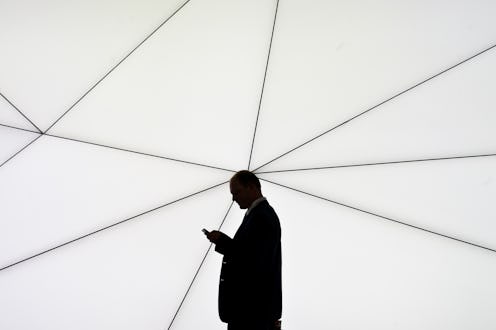News
What The USA Freedom Act Changes For The NSA
The House of Representatives voted Wednesday by an overwhelming majority of 338 to 88 to approve the USA Freedom Act, which alters the Patriot Act's rules on bulk phone data collection. The USA Freedom Act now heads to the Senate, with officials hoping that a decision will be made on the bill before the Patriot Act provisions that it alters expire on June 1. The bill was first introduced in 2013 and has since gone through two amendment periods, one from the Intelligence Committee and one from the Judiciary Committee. So, what would the USA Freedom Act change if it were to pass Senate and be signed into law?
Rather than allowing the NSA to continue compiling daily reports of phone calls that include sensitive information, the USA Freedom Act prevents the NSA from collecting mass amounts of phone data, and instead simply allows phone companies to store that information. The NSA can then request to search such records for a period of 180 days at the most, but only via judicial permission and for probable cause. Thus, a judge would have to approve the NSA's request to obtain phone records if the agency believes the information can aid them in terrorism prevention.
In addition to limiting the time frame phone information is accessible following judicial approval, the USA Freedom Act would limit the NSA from tracking identifying information. The NSA would be allowed to gain access to only the dialing phone number and the answering phone number of a call as well as call duration. They would not be able to access or store information regarding where a call was placed, what was said during the call, or personal information such as "the name, address, or financial information of a subscriber or customer," according to a Congress.gov summary of the USA Freedom Act.
What the NSA would instead have access to is limited metadata. The USA Freedom Act also stipulates that the NSA must submit to an audit of 2012-2014 bulk phone data collection by the Inspector General of the Department of Justice, who will determine whether proper protocol had been followed as well as how useful such information was to the NSA.
The NSA's previous bulk collection methods were shown to do little in terms of terrorism prevention. In a 2014 analysis of 225 cases, none of those examined were shown to have benefited from information gleaned from phone records. Though such discouraging data certainly makes for a compelling case in favor of the USA Freedom Act, the likes of NPR, The Washington Post, and many major media outlets have stated it's highly unlikely the bill will pass through the Senate.
Images: Getty Images (2)
